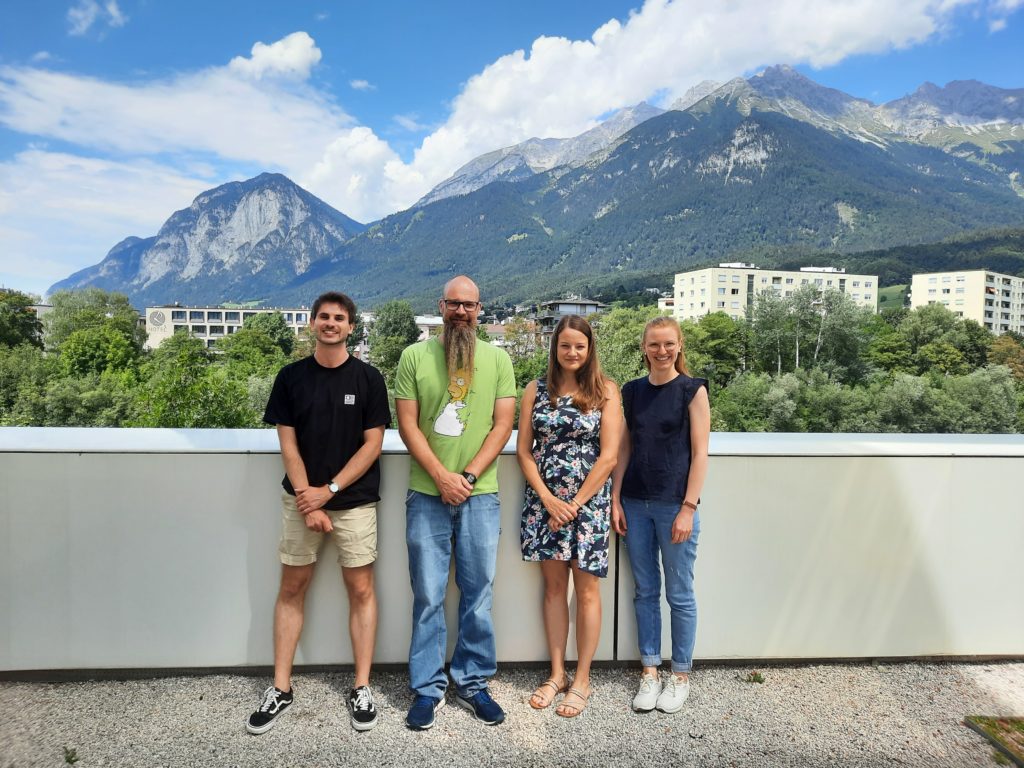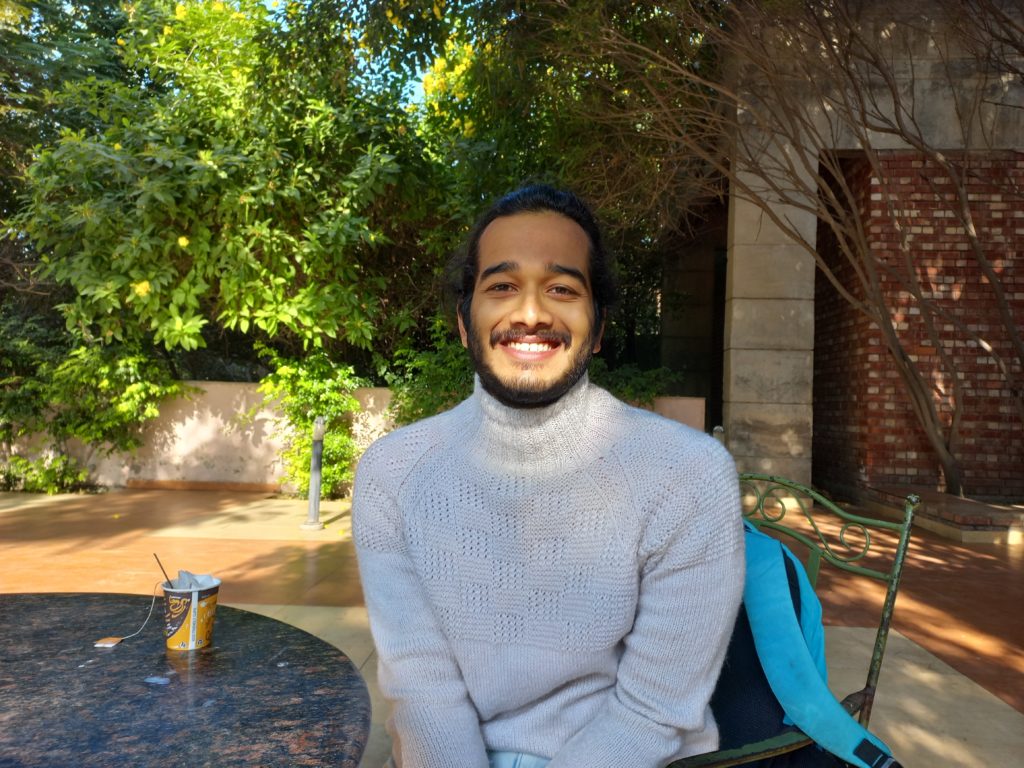In our fourth edition of Welcome PhDs to IMCBio we have portraits from Maximilian Kohl from Austria and Karan Joshi from India.
Research Cluster NetRNA at ARN-Unit, IBMC – Maximilian Kohl
Maximilian Kohl is a young Austrian graduate student with interest in RNA biology and translation/ribosome research. While studying Molecular Medicine to obtain a master’s degree in his hometown at the Medical University of Innsbruck, he joined the lab of Prof. Matthias Erlacher for a master’s thesis project, specializing in bacterial translation initiation. Intrigued by this intricate process at the heart of post-transcriptional regulatory mechanisms, he carried out research addressing novel and lesser-explored aspects of translation initiation. Through the guidance of his kind-spirited and supportive supervisor, his project progressed to a point where his findings are now close to publication. He is eager to see his work shared with the scientific community and looks forward to receiving feedback.
Maximilian was keen on pursuing the next step of a scientific career, performing basic research to obtain a doctoral degree. In, what he describes as “a stroke of good fortune”, he turned his attention to Strasbourg and the IMCBio graduate program. While presenting his research during a poster session at the NetRNA 2022 Congress in honor of Prof. Eric Westhof, he got the chance to meet numerous members of the group of Dr Pascale Romby. Encouraged by the scientific discussions, he decided to apply for a PhD thesis project at the IMCBio graduate school. Because of his passion for translation and ribosome research, he is thrilled to continue working on these subjects, supervised by Dr Stefano Marzi, an expert in the field.

His PhD topic is “a functional study of small proteins and RNA chaperone proteins in translational control in Staphylococcus aureus”. S. aureus is an opportunistic pathogen, whose infamous rise of antibiotic-resistant strains represents a pressing need for in-depth research. While both the virulence as well as the environmental adaptability of S. aureus are facilitated by well-orchestrated programs that regulate gene expression, only little is known about the functional roles and importance of small proteins, derived from small open reading frames (smORFs). Maximilian is excited to dedicate the next few years to this project and thrilled to delve once more into the intricate regulatory mechanisms that govern translational control of prokaryotic gene expression. Even more so, in the beautiful city of Strasbourg, surrounded by a vibrant scientific community and a kind and welcoming research group.
Research Cluster INRT, Department of Translational Medicine and Neurogenetics – Karan Joshi
Karan Joshi studied for an integrated Master’s degree at the Indian Institute of Science Education and Research in Mohali, India (IISER-M). He initially joined the degree with Chemistry in my mind, being fascinated by the beauty and intricacies of molecules, organic synthesis, and molecular kinetics. He was always intrigued him to pursue them. However, after a brief stint with quantum chemistry, he chose to try hands-on other STEM disciplines, for instance, theoretical physics. Not finding much sense in classical mechanics, he preferred moving on to study biology where he initially worked in Ethology, using the Cricket model system first and then avian Jungle Babblers. He found the work in the field quite fulfilling, and at the same time, he felt he matured as a scholar with each course he took in biology, from Advanced cellular biology to Cancer biology to Protein engineering. He spent time learning molecular biology, working with yeast in a ubiquitin biology lab under the supervision of Dr Shravan Kumar Mishra, doing short-term experimentation with scientific rigour.

For his master’s thesis, he spent a year working in an endomembrane trafficking lab under the supervision of Dr Mahak Sharma. During that stay, he dealt with Salmonella and its close interaction with the endomembrane network and the endoplasmic reticulum of epithelial cells using HeLa cells as a model.
This work focused on cellular and molecular biology, enabled him to apply to IGBMC. Karan was attracted to the program by the nature of the research and the interdisciplinary scientific thinking he advocates for. He feels really excited and lucky to have joined Dr Sexton’s lab, which focuses on the genome’s spatial organisation.
When he’s not working or thinking about work, he enjoys reading, looking at art, hiking, birdwatching and photography.
